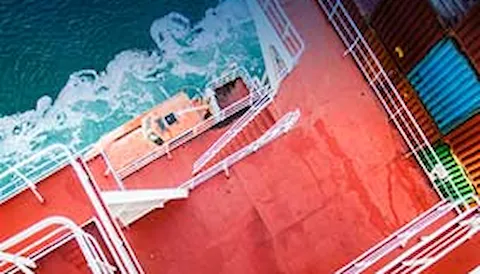Brazil-ready offshore classification package
Class your floating production storage and offloading (FPSO) unit for Brazil with confidence
Brazil-ready offshore classification package
Operating an FPSO in Brazilian waters goes beyond having just a robust design. It requires precise alignment with a complex regulatory landscape and clear evidence that your unit and production plant meet Brazil-specific requirements.
DNV provides an integrated path to compliance through class and dedicated BRA qualifiers that build on our offshore rules and verification services.
A Brazil‑ready classification package
|
Navigate Brazil’s regulators without the guesswork
Brazil’s offshore regime involves multiple bodies, each with relevant technical requirements. These include the Brazilian Navy / DPC (NORMAM), ANP, ANVISA, IBAMA and CONAMA. Our guidance maps these regulators and the main instruments that affect FPSO design, equipment and operations in Brazilian jurisdictional waters.
Examples of Brazil‑specific expectations that are part of the BRA framework:
- Pollution control and NORMAM references (DPC/Maritime Authority): alignment with MARPOL for FPSOs/FSUs via NORMAM 01 Ch.9
- Waste, effluent and emissions (IBAMA/CONAMA): parameters for produced water, black/grey water, incineration limits, and atmospheric emissions from point sources
- Electrical safety and explosive atmospheres (NR‑10 / ABNT NBR IEC 60079): Brazilian expectations for hazardous area classification and testing/labelling regimes
- Pressure equipment (NR‑13): Brazil‑specific applicability checks and Portuguese documentation/sign‑off by a legally licensed professional (PH)
- Fire and lifesaving specifics (DPC/NORMAM, NR‑37, ISO 13702): national nuances from lifejacket distribution to INMETRO labelling and testing intervals for extinguishing systems
Why this matters: Consolidating these elements within the BRA qualifiers provides a single framework to demonstrate how class and Brazil‑specific expectations are met, supported by DNV’s verification records.
Detailed example of a Brazil‑ready classification package
Production plant scope with PROD(BRA)
For FPSOs with hydrocarbon processing on board, we can assign PROD(BRA) notation, referencing our offshore processing standard DNV-OS-E201 for design and construction, and adding Brazil‑specific checks. This includes topics such as ANP pre‑approval for routine flaring and fiscal metering provisions (locations, specification, and pre‑approval pathway), helping you plan engineering and documentation from day one.
Verification and survey activities for PROD(BRA) are executed against our oil and gas processing system rules/standards, with the added Brazil‑specific verifications, aligning production plant assurance with the FPSO’s class programme.
Built into our offshore rules with no reinvention required
The BRA qualifiers are add‑ons to our offshore rules (e.g., for floating production units), so you benefit from a unified rule set and approval pathway. Where relevant, we apply the underlying DNV offshore class rules for FPSOs, then add the BRA specifics described in our guideline to confirm Brazil‑related requirements. This avoids parallel, conflicting or redundant verifications.
For reference, our rules for floating production, storage and loading units set the overarching class framework that BRA builds upon, ensuring consistency from first drawing to commissioning.
Maintaining compliance throughout operation
BRA notations follow our fleet‑in‑service survey systematics, with annual and complete periodical surveys aligned to the relevant class notations (Oil production / Oil storage / PROD). At renewal, our experts verify that any changes to referenced technical requirements have been monitored (e.g. through a gap analysis) in order to maintain the BRA status with certainty.
Extend assurance with targeted services and notations
Some topics are excluded from the BRA qualifiers by design. To cover these areas, we offer additional verification services with Statements of Compliance and/or dedicated class notations. For example, HELDK (helideck), Crane‑offshore, DYNPOS/DPS (dynamic positioning), and COMF‑MOU (comfort). We tailor the assurance scope to your risks and contractual needs without over‑scoping the BRA core.
How we deliver expert FPSO support for Brazil
- Early scoping: FPSO concepts are mapped against the BRA framework and underlying class rules, highlighting Brazil‑specific items and documentation early.
- Concurrent verification: We execute class reviews and BRA verifications together where efficient, cutting cycle time between design, comments and approval.
- Ready for authorities: While BRA is not an authority approval, we support you in presenting a coherent dossier when engaging ANP, DPC, ANVISA and IBAMA.
- Operating with confidence: BRA status is maintained through in‑service surveys and renewal gap analyses to keep compliance evidence up to date.
At a glance: why choose DNV for your FPSOs in Brazil
- One integrated pathway: we combine offshore classification with Brazil‑specific verification steps (design, CMC, construction, commissioning and operation), reducing interfaces and eliminating rework.
- Regulatory clarity: Guidance identifies who regulates what (DPC/Navy, ANP, ANVISA, IBAMA/CONAMA), what the key instruments require, and how those expectations are evidenced for an FPSO.
- Pragmatic detail that accelerates execution: From NORMAM acceptance of foreign type‑approved equipment (with correct documentation and translation) to INMETRO labelling for extinguishers, we point to the specifics that often delay projects, enabling teams to close them early on.
- Continuity into operations: Periodical surveys and renewal checks are embedded in our offshore in‑service regime, so Brazil‑related evidence stays current over the FPSO unit’s life.
- Global assurance heritage: Our purpose is to safeguard life, property and the environment through delivering classification and technical assurance worldwide, supporting safe and consistent operations in Brazil.
Let’s scope your project
Whether you are sanctioning a new FPSO, relocating a unit to the Brazilian continental shelf, or planning life‑extension with Brazil in mind, DNV’s classification and BRA qualifiers provide a proven, integrated route to demonstrate compliance. Let’s scope your project and timeline.
Contact us




